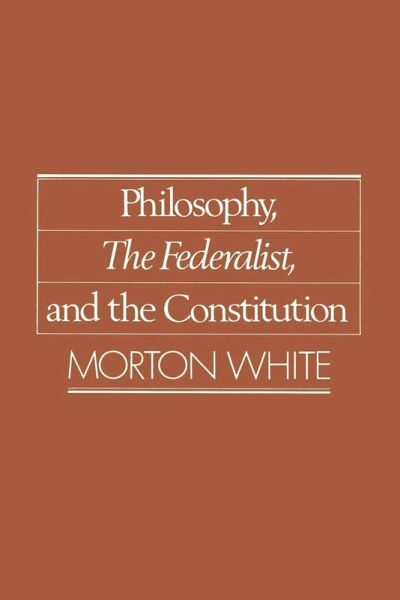
Philosophy, the Federalist, and the Constitution

PAYBACK Punkte
51 °P sammeln!
In 1787, Alexander Hamilton, John Jay, and James Madison wrote The Federalist to rally support for the ratification of the Constitution of the United States. In spite of the pragmatic intentions of the authors, they often implicitly expressed themselves in philosophical language, drawing from the major philosophers of their day, notably Locke and Hume. In this book, Morton White presents the first synoptic view of the major philosopical ideas in The Federalist. Using the tools of philosophy and intellectual history, he examines the theories and disciplines used in different degrees by the foun...
In 1787, Alexander Hamilton, John Jay, and James Madison wrote The Federalist to rally support for the ratification of the Constitution of the United States. In spite of the pragmatic intentions of the authors, they often implicitly expressed themselves in philosophical language, drawing from the major philosophers of their day, notably Locke and Hume. In this book, Morton White presents the first synoptic view of the major philosopical ideas in The Federalist. Using the tools of philosophy and intellectual history, he examines the theories and disciplines used in different degrees by the founding fathers in defence of the Constitution. 'Thoroughly researched and carefully argued; this is an important book.'The Library Journal




